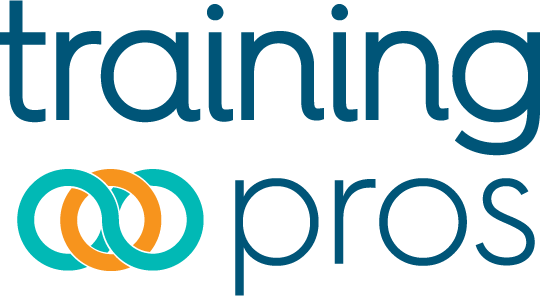EU MDR: Quality System Alignment Conference
December 4-5, 2019 | Chicago, ILCrowne Plaza Chicago West Loop
DAY TWO | THURSDAY, DECEMBER 5
8:30 REGISTRATION & WELCOME COFFEE
8:55 CHAIRPERSON’S OPENING REMARKS
9:00 NON-COMPLIANT PARTNERSHIPS AND TRANSITIONING ECONOMIC OPERATORS
Medical device companies tend to only consider transitioning supplier partnerships in extreme circumstances, as it is a costly and time consuming initiative. However, in light of the stringent requirements laid out by the MDR, many quality professionals are looking at a supplier’s reluctance to alter manufacturing processes or declination to provide necessary proprietary information as an untenable risk to company’s product line. For a look at a proactive and successful approach to transitioning suppliers, one quality team will speak to how they identified a non-compliant economic operator, assessed the associated risks with altering the partnership, and successfully integrated a new supplier into a manufacturing process.
Simone Belinga, Director, Supplier Quality Assurance, INTARCIA THERAPEUTICS
9:45 PANEL: STRATEGIES AND SOLUTIONS FOR THE RENEGOTIATION OF SUPPLIER QUALITY AGREEMENTS
One of the major concerns when implementing the MDR is how it will affect relationship agreements with partnering suppliers. While some companies have successfully renegotiated these agreements to be in compliance with new regulations, others have had to terminate arrangements with suppliers entirely and look for those services elsewhere. Supplier compliance solutions are unique and must be tailored, as each company’s size, resources and established project timelines vary. For a comprehensive look at a number of possible solutions, delegates will benefit from hearing multiple perspectives on how the MDR has impacted supplier agreements across a variety of medical device companies and how that impact was maneuvered by internal quality management systems.
MODERATOR:
Cathi Crist, INTUITIVE SURGICAL
PANELISTS:
Simone Belinga, INTARCIA THERAPEUTICS
Jeremy Moore, ABBVIE
10:30 COFFEE AND NETWORKING BREAK
11:00 DEFINING COMPLEX ECONOMIC OPERATOR PARTNERSHIPS UNDER THE EU MDR
A single economic operator can provide a number of services for a medical device company, but the EU MDR requires these partnerships be defined according to standardized quality agreements. Established procedures like own brand labeling and being paid on consignment have complicated these partnerships, as the MDR does not account for complexity in such arrangements. Open and consistent communication with internal regulatory teams and early recognition of the supplier definition requirements will help quality teams clarify the nature of these agreements and reduce the risk of supply chain interruption.
- Analysis of manufacturer partnerships as defined by the EU MDR
- Categorizing partnering organizations throughout the supply chain
- Communication with external organizations and redefining of roles
Margaret Mucha, RAQA Executive, Quality Management, IBM
11:45 LUNCHEON FOR ALL PARTICIPANTS
MULT-PART MODULE: DEVELOPING COMPLIANT REPORTING STANDARDS TO MATCH NOTIFIED BODY EXPECTATIONS
While the MDR specifies that technical files, clinical evaluations, and adverse event reports must be organized and readily accessible, the formatting of those documents is open to the interpretation of notified bodies. Faced with an increasing workload and limited resources including time, staffing, and budgets, these organizations are limited in their ability to answer regulatory questions, leading to uncertainty and delay within medical device companies. Quality professionals have struggled to determine how to revise internal quality manuals in a way that will harmonize reporting practices with the expectations of notified bodies.
- Opening reliable lines of communication with a notified body
- Accurate reading and interpretations of new requirements
- Setting reporting standards in absence of regulatory guidance
1:00 MODULE ONE: CASE STUDY: UPDATING QUALITY MANUALS UNDER MDR ADVERSE EVENT REPORTING
Jon Cornell, Head of Quality, COLOPLAST
1:45 MODULE TWO: CASE STUDY: MANAGEMENT AND ORGANIZATION OF TECHNICAL FILES UNDER EU MDR IMPLEMENTATION
Colleen Watson, Director Regulatory Affairs, VYAIRE
2:30 PREPARING QUALITY SUBMISSION STANDARDS FOR THE NOTIFIED BODY BOTTLENECK
With a limited number of available notified bodies taking on a large number of CE Mark applications and renewals, any delay in the certification process could potentially hurt a product’s viability and diminish its chances of entering, or remaining, on the European market. As a safeguard against these complications, quality assurance professionals must standardize company submission procedures in alignment with notified body interpretations. For perspective on how these obstacles can be avoided through vigilance and proper documentation, attendees will see how one quality team worked with internal regulatory teams and notified bodies to help ensure ideal product certifications.
- Establishing open and reliable communication with notified body
- Utilizing of notified body interpretations for implementation process
- Identifying the appropriate internal certification audits for products
Jeremy Moore, Associate Director, Device Quality, ABBVIE
3:15 COFFEE AND NETWORKING BREAK
3:45 ACCURATE FORMATTING OF PERIODIC SAFETY UPDATE REPORTS
In addition to Post Market Surveillance Reports, device companies with higher risk products must provide periodic safety update reports (PSUR) to notified bodies. For companies with a large product line, this means additional workflows for quality teams without much guidance on how these reports are to be formatted and shared. Questions around specific deliverables, content formatting, and transferring PSUR data to the EUDAMED database remain unanswered. For clarity on the specific deliverables surrounding PSURs, developing internal templates and uploading the reports to EUDAMED, proper compilation of a PSUR will be demonstrated as an example of accurate implementation and compliant reporting processes.
Jon Cornell, Head of Quality, COLOPLAST
4:30 END OF CONFERENCE





